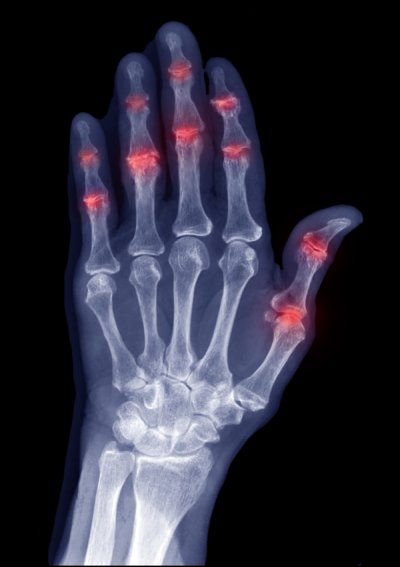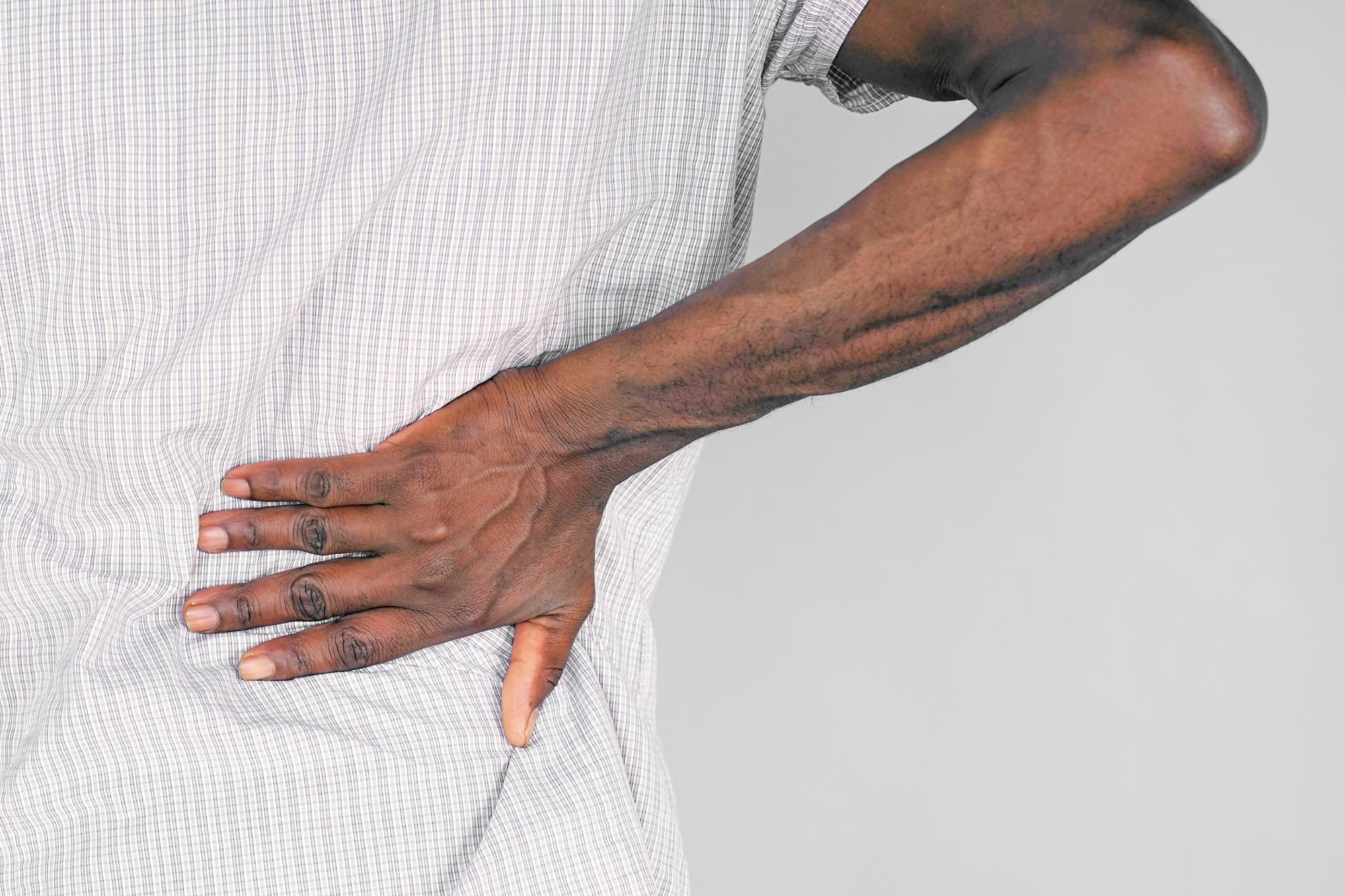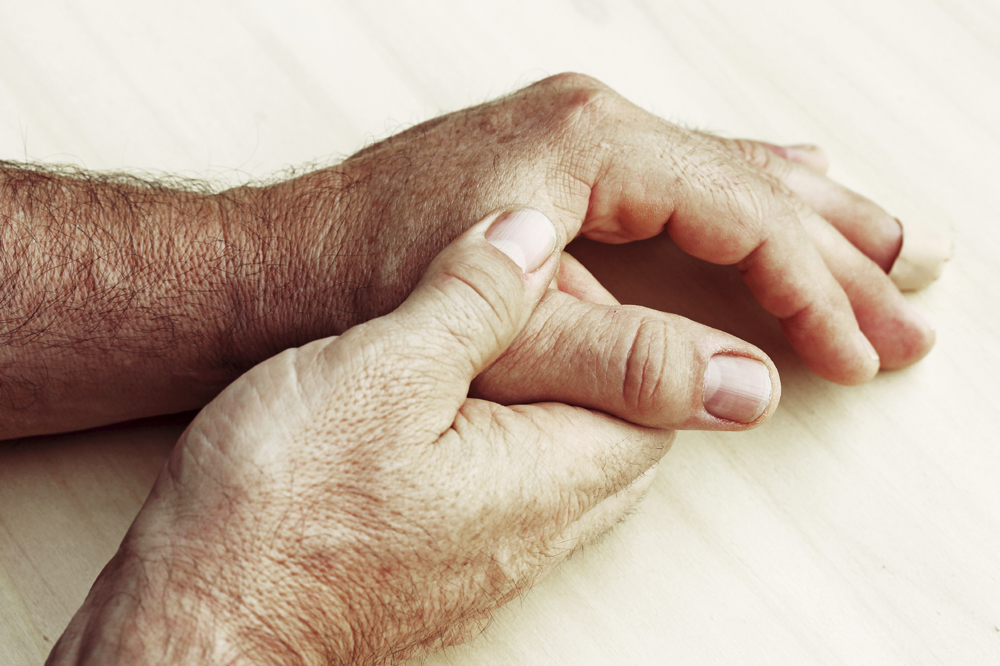Psoriatic arthritis
Psoriatic arthritis (PsA) is a type of arthritis that occurs in association with the skin disease psoriasis. PsA is a chronic, inflammatory disease of the joints and entheses, where tendons and ligaments connect to bone.

Image: iStock
About psoriatic arthritis
Psoriatic arthritis is a form of arthritis that can cause inflammation in joints, tendons, and the spine. The disease can cause asymmetric inflammation in both small and large joints in multiple areas of the body, characterized by swelling, pain, and reduced function and mobility. Most people who have psoriatic arthritis find it occurs after developing skin psoriasis, but some do develop the arthritis before they notice any psoriasis on their skin.
THE SEVERITY of the disease greatly varies from person to person. For some, the disease is mild with only mild joint pain, while others have a very severe psoriatic arthritis that breaks down and destroys joint function.
THE DIAGNOSIS is established by a rheumatologist. There are no definitive guidelines for diagnosing psoriatic arthritis and there is no single test that can confirm it. A diagnosis will then be made based on your symptoms, your medical history, and by ruling out other conditions. In addition to a standard clinical examination, the evaluation will also involve X-rays, blood tests, and possibly joint fluid tests. In psoriatic arthritis, you will not have rheumatoid factors in the blood, as these factors primarily occur in rheumatoid arthritis and not in psoriatic arthritis. SR and CRP levels may be moderately elevated (2).
Causes
The cause of psoriatic arthritis is complex and not yet fully understood, but we know that the immune system, genetics and environment play major roles in its development. Psoriatic arthritis is often associated with the skin disease psoriasis. Both diseases are to some extent hereditary, and multiple cases are often seen in the same family.
Symptoms and localization
In psoriatic arthritis, the joints affected may become tender, swollen and stiff. These symptoms tend to be worse first thing in the morning and with rest, and ease with exercise. The symptoms can vary and depend on how far the disease has progressed and which joints are affected.
- Pain, stiffness, throbbing, swelling and tenderness in one or more joints
- Increased warmth in joints
- Swollen sausage-like finger(s) or toe(s)
- Tenderness, pain and swelling over tendons
- General fatigue in the form of exhaustion (fatigue)
- A reduced range of movement
PsA can occur in any joint and wherever your ligament and tendons connect to bone. Learn more about the different manifestations here.
Inflammation caused by psoriatic arthritis can impact other organs and tissues in the body. People with psoriatic arthritis may also experience other health conditions, a phenomenon called comorbidities. This is especially true for severe psoriatic arthritis and can include cardiovascular diseases, metabolic syndrome, anxiety and depression, diabetes, Crohn's disease, and ulcerative colitis.


Image: Back and finger joint pain are common in psoriatic arthritis (iStock)
Prevalence
In Norway, 0.6-0.7 % (1) of the adult population have been diagnosed with psoriatic arthritis. Men and women are equally likely to develop psoriatic arthritis and, and it can occur at any age.
Most people have psoriasis on their skin before they notice symptoms of psoriatic arthritis. However, in some cases the skin and joint conditions occur at the same time, and sometimes psoriatic arthritis is present before the skin condition psoriasis appears. It is worth noting that people with psoriasis can also develop other forms of arthritis such as rheumatoid arthritis and osteoarthritis. Having psoriasis does not necessarily mean that aches and pains or other joint symptoms are psoriatic arthritis.
Prognosis and treatment
There is no treatment that can cure psoriatic arthritis, but proper treatment can reduce joint pain, inflammation and improve joint function. An important goal of treatment is to maintain the patient's ability to work and their quality of life as much as possible. Treatment involves collaboration between a general practitioner, dermatologist, rheumatologist, and often a physiotherapist and occupational therapist.
In the early stages and in mild cases, psoriatic arthritis is treated with cortisone and other immunosuppressive medications. Cortisone can be administered orally or injected into muscles or joints. In more severe cases of the disease, disease-modifying treatment (DMARD), such as Methotrexate and biologic medicine, is used.
PHYSICAL ACTIVITY can play an important role in managing PsA. Adequate physical can help maintain good mobility, reduce inflammation levels, and lead to reduced pain perception. It is not harmful to the joints to exercise or exert yourself. However, if you experience pain, it may be a sign that you should take it a bit easier next time.
CLIMATE THERAPY can be helpful for psoriatic arthritis. Children, adolescents, and adults with psoriatic arthritis can apply for the state program for treatment trips abroad. Read more about this here.
Life with psoriatic arthritis
Psoriatic arthritis can cause significant problems with reduced functionality and quality of life. The impact of PsA on your quality of life is similar to that of rheumatoid arthritis (RA). But there are significantly fewer resources for people living with PsA than there are for people with RA.
ABILITY TO WORK AND ADAPTATION Most people with psoriatic arthritis can function well in a work situation if conditions are adapted for it. Adaptation is the responsibility of the employer, and in consultation with an occupational therapist, your workplace should be tailored to your functional capacity as best as possible.
Read more about your rights and reimbursement options here!
BENEFITS When dealing with a chronic illness, you often have the right to certain financial and practical benefits. For example, treatment and training with a physiotherapist are free, and more and more hospitals have their own Learning and Mastery Centers (LMS). Contact your local NAV office for information on this.
Do you have any questions about your rights as an individual with a chronic illness? Call the The Norwegian Federation of Organizations of Persons with Disabilities (FFO) Rights center Tel. +47 23 90 51 55.
